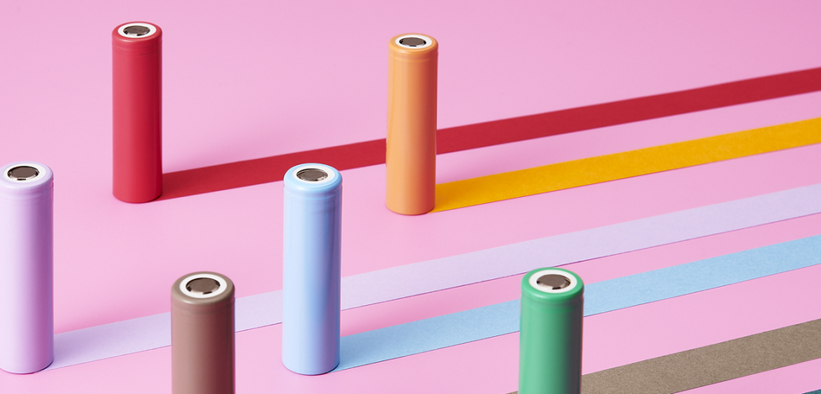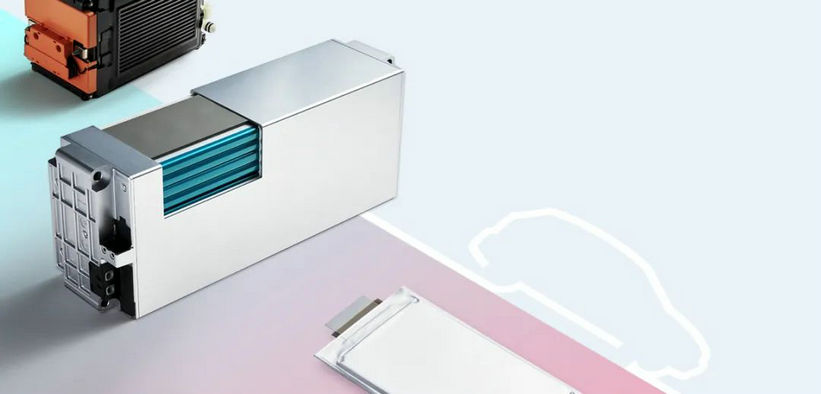| Solid state battery: there are legends in "Jianghu" from time to time |
| Release time:2023-02-16 09:24:32| Viewed: |
A few days ago, the solid-state battery company Huineng Technology announced that it had completed a new round of financing with the amount of 326 million US dollars (about 2.085 billion yuan). Immediately, SK Innovation, a South Korean power battery supplier, publicly said that it planned to start delivering solid state batteries by 2025 two years or sooner than its competitors.
British chemist Stanley Wittingham, one of the winners of the 2019 Nobel Prize in Chemistry, pointed out that "the most difficult part of manufacturing solid state batteries is to meet the requirements of high energy density, fast charging, long cycle life and wide temperature range." Now, how mature is the technology of solid state batteries? How long is it before mass production?
Technological innovation promotes "hot" solid-state batteries
With the wide attention and strong promotion of the industry, the development of solid-state batteries is becoming hot.
"We have prepared solid battery samples with energy density up to 350Wh/kg by using solid electrolyte membrane and special cathode materials," said the relevant person in charge of Zhuhai Guanyu, a listed company, not long ago. At the same time, Solid Power, an American solid state battery developer, disclosed the safety and performance data of its high content silicon all-solid-state battery technology. Its small soft pack battery can achieve more than 1000 cycles at room temperature.
SK Innovation, which is actively seeking new breakthroughs, will invest US $30 million (about 190 million yuan) in Solid Power in exchange for the right to use technology, jointly produce vehicle-level solid state batteries, and hope to provide power batteries with higher energy density and lower cost for long-driving electric vehicles. In addition, Solid Power's solid state battery research has also received financial support from Ford and BMW. Solid Power responded that it would provide SK Innovation with its own developed sulfide solid electrolyte, patented battery design and production process.
What is the secret of sulfide solid electrolyte? "Solid-state lithium-ion batteries can have both high energy density and high power density while greatly improving the safety. Solid Power's sulfide solid electrolyte has the advantages of high ionic conductivity, good mechanical ductility and good interface contact with the electrode. It is one of the most promising new technologies at present." Su Nanfeng, consultant of the lithium battery application professional committee of the China Battery Industry Association, accepted The reporter of China Auto News said that in the past two years, the development of solid-state battery technology has accelerated, and Solid Power's all-solid-state battery is based on sulfide solid electrolyte, which is one of the key technologies in the field of solid-state battery research in recent years.
It is reported that Hyundai Motor Corporation of Korea is also not willing to lag behind in the layout of solid-state batteries, and announced that it will cooperate with the American power battery manufacturer Factory Energy (hereinafter referred to as "FE") to jointly develop vehicle-level solid-state batteries. At present, both sides have made breakthroughs in the research and development of "factor electrolyte system technology" (FEST).
"Factor electrolyte system technology uses a proprietary solid electrolyte material to replace the current liquid electrolyte of lithium batteries, and can achieve safe and reliable battery performance by matching electrodes with high voltage and high energy density." Song Haojun, an expert of Sichuan New Energy Automobile Power Battery Industry Alliance, told reporters. Through the test, the capacity of FE's solid state battery can still maintain 97.3% after 675 cycles at 25 ℃, which can theoretically increase the driving range by 20%~50%. The convenience of mass production is reflected in that the existing lithium battery production line does not need to be greatly changed.
"At present, the solid state batteries being developed in the industry can be divided into three types according to the type of electrolyte, namely polymer, sulfide and oxide. Among them, polymer electrolyte belongs to organic electrolyte, and the latter two belong to inorganic electrolyte." Chen Xintong, a researcher at the New Energy Materials Research Center of Guangdong University of Technology, introduced to reporters.
Main technical problems remain to be solved
The solid state battery has entered the mass production stage, which is the sign of its real application. Now, people are looking forward to an answer to the question of how long to wait.
Recently, Weilai Automobile announced that it will mass produce ET7 within the year, and this car is also the company's first product using solid-state battery. It is reported that the top configuration version of Ulai ET7 will be equipped with 150kWh solid-state battery, and the driving range will reach 1000km. However, the data also shows that the solid state battery is a semi-solid battery with 90% solid state+10% liquid electrolyte.
"Semi-solid battery is a transitional technology, which can be mass produced according to the existing lithium battery manufacturing conditions." Xie Yuzhong, consultant of Shandong Battery Industry Association, said in an interview with reporters that on the basis of the current common NCM811 battery, adding silicon and carbon elements to the negative electrode material can produce semi-solid battery, which is not difficult to achieve technically. In fact, the jelly battery released by Honeycomb Energy this year is also a semi-solid battery, which is ready for mass production.
However, real solid state batteries still face many challenges to achieve mass production. "Solid state battery has many advantages, but it still needs to overcome a series of difficulties in mass production."
Li Jianping, a researcher at the Jiangsu New Energy Automobile Industry Development Research Institute, believes that solid state batteries have the advantages of safety, high energy density, good cycle performance, wide temperature adaptation, and fast charging speed, but the difficulties in mass production are: first, in the selection of solid electrolyte, several technical routes have their own advantages, such as oxide solid state batteries and thin film solid state batteries, which are difficult to make large-capacity power batteries, Polymer solid state batteries cannot work at room temperature and are difficult to be compatible with high voltage positive electrodes. Sulfide solid state batteries are faced with such problems as electrolyte sensitive to air, harsh manufacturing conditions, expensive raw materials, and immature large-scale production technology; Second, the production process is not mature. Due to the uncertainty of the technical route, it is difficult to be as mature as the existing lithium ternary battery; Third, we should also solve the problems of low lithium ion conductivity, poor solid/solid interface contact and stability of solid electrolyte materials; Fourth, the preparation process at this stage is complex and the overall production cost is too high.
"In fact, the technical requirements that the Nobel Prize winner Weitinghan said the solid-state battery should meet are all the technical problems that need to be solved at present." Lu Ancheng, a researcher of the Zhejiang New Energy Technology Application Research Institute, told reporters that at present, the technical routes chosen by countries are different. Among them, Japanese and Korean enterprises mostly adopt the technical route of sulfide solid electrolyte, while Chinese enterprises mainly use the oxide route, while European and American enterprises have diversified choices. For example, Solid Power invested by BMW and Ford mainly develops sulfur-based all-solid battery, while the solid battery developed by Quantum Scape, another American battery company, takes the oxide route.
"From the current technical level, it is estimated that it will take 5 to 10 years before the mass production of solid state batteries." Lin Shuwen, a researcher at the East China Automotive New Materials Technology Research Institute, believes that although some companies have developed solid state battery samples, there is still a short distance between mass production and commercialization.
The competition to seize the technological commanding heights is fierce
Although there are still technical bottlenecks to be broken, this still cannot stop enterprises from taking the lead in the layout of solid-state batteries.
Quantum Scape, founded in 2012, has received investment from Volkswagen, SAIC, Continental and other enterprises. Solid Power, a promising innovation company of BMW, Ford and SK, plans to trial-produce solid-state battery products in 2022 and start mass production in 2024. Toyota is not lagging behind in the research and development of solid state batteries. The prototype of its solid state batteries has been tested and is expected to be mass produced around 2025.
In addition, Volkswagen publicly stated that it would focus on developing solid-state battery technology in the future and expected to put it into use in 2025; Honda began to verify the production technology of all-solid-state battery this year, and strived to apply it to mass production vehicles; BMW Group released a plan, saying that it plans to achieve mass production by 2030; LG Energy is also developing all-solid-state batteries and is expected to achieve mass production in 2026; The mass production of solid-state batteries for modern cars is set at 2030.
In China, many battery companies have also started to make efforts. Huineng Technology, which is favored by FAW, Weilai and other auto companies, is expected to mass produce solid-state batteries in 2024; Guoxuan Hi-Tech, a shareholder of Volkswagen, is promoting the research and development of solid state batteries and solid state electrolytes; Ningde era mainly focuses on sulfide solid state battery technology; Wanxiang Qianchao, Ganfeng Lithium, Tianqi Lithium and Zhongtian Technology are also developing solid-state batteries; Ganfeng Lithium plans to invest 2.2 billion yuan in the construction of ultra-thin lithium anode materials for high specific energy solid-state batteries.
Lin Shuwen told reporters that Toyota has more than 1000 patents for vehicle-grade solid-state batteries, which are among the top in the world, and most of them are invention patents with high gold content; Most battery companies in China have only single-digit or two-digit patents related to solid-state batteries, and the patents related to Huineng Technology are said to have reached three digits, but most of them are utility model patents and design patents, which still have a certain gap compared with Toyota.
In November 2020, the General Office of the State Council issued the "New Energy Vehicle Industry Development Plan (2021-2035)", which clearly required to accelerate the development and industrialization of solid-state power battery technology. It is predicted that by 2030, the global solid-state battery market will exceed US $6 billion (about 38.3 billion yuan), and the share of the Chinese market will exceed 50%.
"In terms of solid state battery, which represents the direction of technological innovation and development, it is the key to take the lead in seizing the technological commanding point." Li Jianping believes that this is also the key to take the lead in mass production and occupy the dominant position in the market. |






